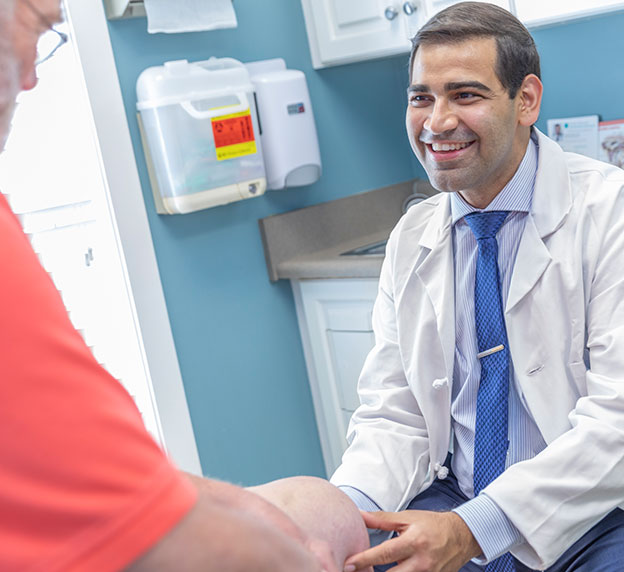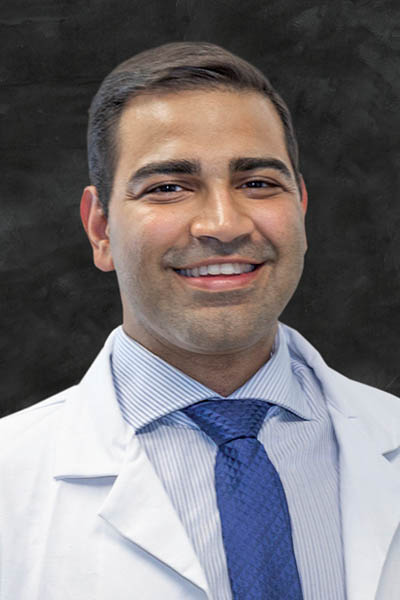
Is an aching knee (or two) battering your fitness goals? If so, you’re not alone.
“Mild, temporary knee pain occurring after a long walk or run is usually not a worry, and you’re probably in good company,” says Dr. Vandit Sardana, a board-certified, fellowship-trained orthopedic surgeon at Beaufort Memorial Orthopaedic Specialists. The cause for the discomfort, he adds, is often nothing more than mild arthritis — the wearing away of knee cartilage that’s common with aging.
In most cases, the mild pain is temporary and doesn’t limit activities. For some, however, the symptoms have a much deeper impact. When knee pain begins to affect daily life, a board-certified orthopedist can help you get to the cause of your pain and treat it.
Do You Have Arthritis?
There are more than 100 types of arthritis, or joint inflammation, that researchers believe are the byproducts of years of joint wear and tear and aging. The disease often advances slowly — appearing after the age of 45 — with common symptoms being stiffness or achiness.
Arthritis is different from the popping and clicking many people feel and often hear coming from their knees when they reach their 40s. Called crepitus, the “Rice Krispy-like” sounds can occur when a joint is simply inflamed or developing early-stage arthritis.
Should You Limit Activities?
While aging knees are something that cannot be prevented, there are ways to work around mild pain. Runners can try walking or non-weight-bearing activities such as swimming. Dr. Sardana says becoming less active is not the best option.
“Low impact joint motion actually keeps your joints healthy,” he says. “Hinges that aren’t worked get rusty and stiff. Activities such as walking, swimming, rowing and hiking can help keep your knees and other joints healthy.”
What’s the Next Step?
While Dr. Sardana says the pain and joint changes of arthritis differ from person to person, mild soreness after a walk or run that resolves and doesn’t worsen is normal and nothing to be alarmed about. If the discomfort grows and begins to slow you down or affect your activity choices, seeing a joint specialist is a wise move.
Learn more about orthopedic pain and treatments, or find an orthopedic specialist today.
We also recommend attending our Joint Pain and Treatment Class to discuss your symptoms or pain.

